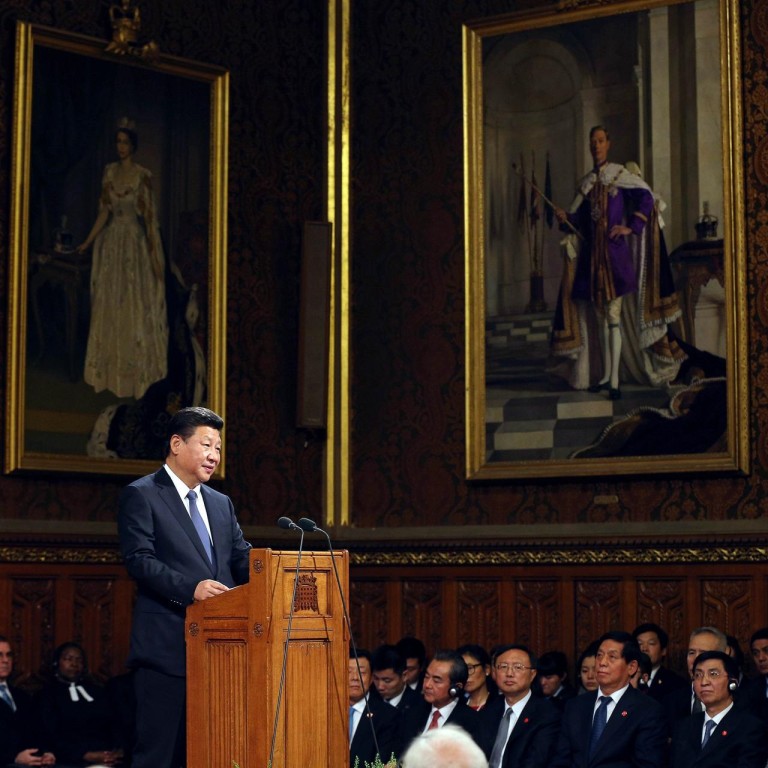
Whether in public or in private, Britain was right to bring up human rights during Xi Jinping's state visit
Toh Han Shih welcomes the fact that the issues of democracy and rights were raised during Xi Jinping's state visit to Britain, given the huge investment flows coming from China

If Corbyn were to one day become prime minister, would he welcome the huge Chinese investments into the UK, as Cameron is doing?
When introducing Xi to the House of Commons on Tuesday, Bercow pointedly said: "We have had no fewer than four prominent daughters and sons of Asia in our Parliament in the past three years, starting with Aung Sang Suu Kyi of Burma, the Nobel Peace Prize winner, democracy champion and international symbol of the innate human right of freedom … In all matters, from international law to individual liberty, we should all aspire to be seen not merely as a powerful force in the world but as a moral inspiration to it."
Although Bercow's speech did not directly mention China's record on human rights and democracy, it is obvious that he was indirectly referring to it.
READ MORE: Britain backs China's bid for free-trade pact with the European Union

Corbyn and Bercow follow an admirable precedent from 1840, when British opposition politicians criticised foreign secretary Lord Palmerston for his plans to embark on the opium war against China.
In March 1840, Sir Robert Peel, leader of the Conservative party which was then in opposition, introduced a motion in Parliament to censure Palmerston's aggressive policy towards China over Britain's opium trade with the Qing empire. Ironically, the Conservative Party headed by Prime Minister David Cameron is the ruling party today.
During the Parliamentary debate in March 1840, a fast-rising Conservative member of Parliament, William Gladstone, spoke strongly against Britain's exports of opium to China, describing it as "this infamous and atrocious traffic".

Peel's censure of Palmerston narrowly failed by 262 votes to 271. Although Britain subsequently defeated China and forced the drug upon the nation, against the Chinese emperor's will, the narrow loss of this censure indicates the strength of the opposition to the opium war among British lawmakers.
In 1906, the British Parliament unanimously adopted the motion that the Indian-Chinese opium trade was "morally indefensible", which put an end to Britain's export of opium to China. The British values of democracy and human rights were, in this instance, friends of China.
The fast-growing Chinese investment in the UK will benefit both countries. However, the risk is that in their eagerness to lap up the huge influx of Chinese funds, British companies and politicians may be lax in their due diligence with regard to whether all the Chinese money is clean.
Just as the British should remind China of human rights, they should also ensure their own corporate governance is sufficiently rigorous to prevent money laundering and corrupt Chinese money from entering the UK.

